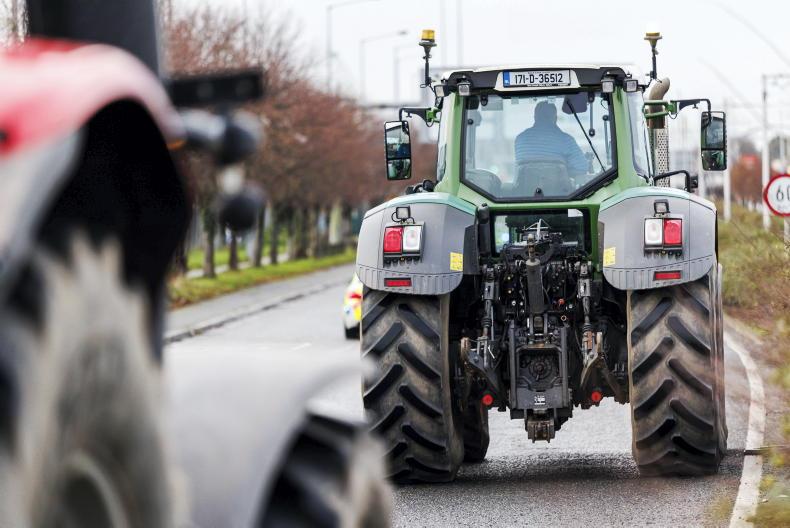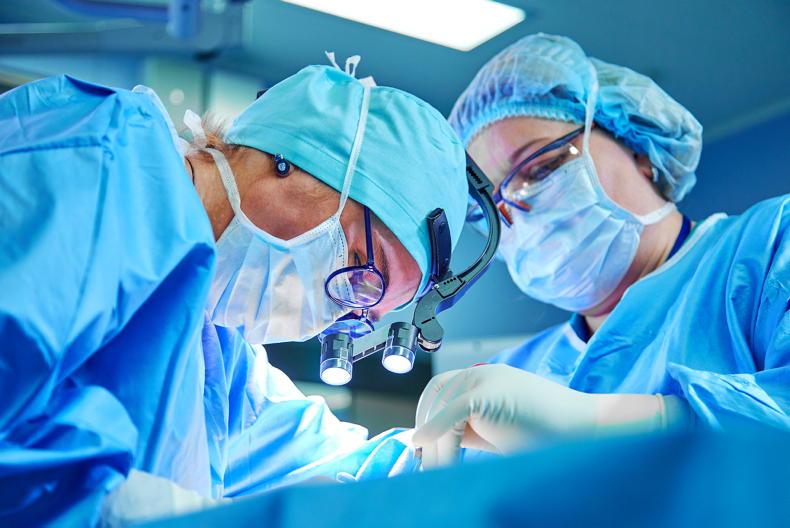There are many master’s and PhD opportunities related to the agri-food industry out there. If you are considering studying at postgraduate level, there are important factors to consider during the decision-making process.
Programme content
The most important thing, when looking into a post-graduate programme, is researching the content of the course. What are you actually going to be studying or researching? Is this in line with your interests, and what you want to do after its completion? Also, you should make sure you’re doing it for the right reasons. It is a big commitment and a decision not to be taken lightly.
Your career goals
Consider how the programme will help achieve your career goals. Will it provide the necessary skills, knowledge and experience required for the job you want in the future? What are the benefits it is going to give you in terms of career progression? What are the employability opportunities after completion?
The cost
Master’s programmes can be quite expensive, so it’s essential to ensure you can afford the cost of tuition, housing, and living expenses (hopefully, without incurring too much debt). How are you going to fund the postgraduate programme? Are you going to have to take out a loan or work part-time during its duration, or is there any funding available that you might qualify for?
For postgraduate (master’s and PhD) studies, EU/EEA students should expect to pay tuition fees that range between €3,000 - 30,000 per academic year. You should contact your college or university to find out about scholarships or bursaries.
Time commitment
Master’s programmes and PhDs are intense and require a lot of time and effort. You will likely have to balance your studies with other responsibilities, such as work and family obligations. Consider the length of time the master’s/PhD programme is, and if you are happy to commit yourself to the time frame. Postgraduate courses vary in duration. Don’t underestimate the effort required to complete a postgraduate course.
Programme requirements
Ensure you meet all the requirements to apply and enrol in the programme, such as prerequisites, GPA requirements and specific admission procedures. It is not always necessary to do a master’s degree in the same field of study that you completed your undergraduate degree in.
Retail Executive
at Ornua

Alicia Sweeney, Retail Executive at Ornua
What master’s programme did you complete?
The MSc in Food Business Strategy in UCD Smurfit Graduate Business School
Why did you decide on that particular master’s?
My undergraduate degree was a BA Hons in Spanish and Classical Civilisation. I chose this master’s because I wanted to gain an understanding of both the Irish and the international food industry, an industry that is impactful, innovative, and constantly growing.
Was the cost a big factor?
Cost is always a factor; doing a master’s is expensive. However, I saw it as an upfront investment with a long-term benefit.
What were the benefits?
Completing this master’s gave me both the knowledge and the confidence to work in the food industry. I learned about a broad range of topics from lecturers who are active in the industry. I also improved my essential ‘softer’ skills, such as communication, leadership, and teamwork.
How did you find the experience?
I enjoyed my master’s experience. The modules were interesting and relevant; we were given the opportunity to learn, engage and think about current topics. I did my ?master’s during COVID-19?; it was all done virtually, adding an extra level of difficulty to the normal coursework and team projects.
What are you doing now?
Since completing my master’s, I have worked in Ornua Co-operative Limited. I joined as a part of their graduate programme where, over 18-months, I had the opportunity to work on both the international sales team and the supply chain team. I now work as a part of Ornua Foods International, on the Irish retail team, selling Kerrygold in the Irish home market.
What advice would you give to someone considering a master’s?
Naturally, I would say do it! If there is an industry or a specific job you are interested in, but feel like you don’t have the knowledge or the confidence yet, a master’s could be a good first step. A master’s is a challenge, but you will never regret upskilling yourself.
After transferring from her master’s Niamh is now completing a PhD Walsh Fellowship
Scholarship.

Niamh Dunphy, PhD Walsh Fellowship Scholar.
What master’s programme did you complete?
The Agricultural Innovation Support programme in the school of agriculture and food science in UCD, a 20-month research master’s, including a 14-month placement with Teagasc.
Why did you decide on that particular master’s?
This programme is aimed at equipping students with the relevant skills to become an agricultural extension worker. I chose the research topic Engaging Farmers in Conversations about Climate Change. Coming from a dairy farm, I’ve always had an interest in sustainable agriculture.
Was the cost of the master’s a big factor?
I think costs are a big factor, especially considering how significant tuition fees are compared to undergraduate degree tuition fees. I was really lucky to be offered the Teagasc Walsh Fellowship Scholarship.
What were the benefits of the programme?
The experience from the Teagasc placement is very beneficial. I’m based in the Waterford/Kilkenny advisory region in the Dungarvan advisory office. Students get experience assisting in a wide range of advisory activities, including the organisation and running of discussion group meetings. One of the most important things is the people you meet along the way.
How did you find the experience?
Transitioning from college-life to work-life was probably the hardest part for me. The first semester is spent in UCD and the following 14 months is spent in a Teagasc office on placement so that transition can be hard. Getting used to speaking to groups of farmers and public speaking was challenging.
Why did you decide to
carry on to the PhD?
In my master’s, I developed a calendar with monthly reminders so dairy farmers could implement farming practices that would reduce greenhouse gas emissions. While designing the calendar, it struck me that the actions on the calendar can increase profitability for farmers as well as reducing carbon footprint. There was a demand to develop a calendar to help other farm enterprises. I knew that there was scope for my master’s project to become a PhD project.
What are you hoping to get from it?
To devise an agricultural advisory strategy that will increase farmer engagement in climate change. I hope to identify the barriers and drivers for farmers in adapting climate change mitigation measures. I want to support advisors in helping farmers reach our 25% reduction in emissions by 2030 and become carbon neutral by 2050.
What advice would you give to someone considering postgraduate studies?
Make sure you are genuinely interested and enjoy the topic you are considering. There’s a lot of work involved and, if you don’t like your subject area, that work becomes a lot harder. Other than that, meet as many people as you can and enjoy yourself along the way!
Read more
Employment law series: 1. what are my obligations?
Focus on farm safety education
There are many master’s and PhD opportunities related to the agri-food industry out there. If you are considering studying at postgraduate level, there are important factors to consider during the decision-making process.
Programme content
The most important thing, when looking into a post-graduate programme, is researching the content of the course. What are you actually going to be studying or researching? Is this in line with your interests, and what you want to do after its completion? Also, you should make sure you’re doing it for the right reasons. It is a big commitment and a decision not to be taken lightly.
Your career goals
Consider how the programme will help achieve your career goals. Will it provide the necessary skills, knowledge and experience required for the job you want in the future? What are the benefits it is going to give you in terms of career progression? What are the employability opportunities after completion?
The cost
Master’s programmes can be quite expensive, so it’s essential to ensure you can afford the cost of tuition, housing, and living expenses (hopefully, without incurring too much debt). How are you going to fund the postgraduate programme? Are you going to have to take out a loan or work part-time during its duration, or is there any funding available that you might qualify for?
For postgraduate (master’s and PhD) studies, EU/EEA students should expect to pay tuition fees that range between €3,000 - 30,000 per academic year. You should contact your college or university to find out about scholarships or bursaries.
Time commitment
Master’s programmes and PhDs are intense and require a lot of time and effort. You will likely have to balance your studies with other responsibilities, such as work and family obligations. Consider the length of time the master’s/PhD programme is, and if you are happy to commit yourself to the time frame. Postgraduate courses vary in duration. Don’t underestimate the effort required to complete a postgraduate course.
Programme requirements
Ensure you meet all the requirements to apply and enrol in the programme, such as prerequisites, GPA requirements and specific admission procedures. It is not always necessary to do a master’s degree in the same field of study that you completed your undergraduate degree in.
Retail Executive
at Ornua

Alicia Sweeney, Retail Executive at Ornua
What master’s programme did you complete?
The MSc in Food Business Strategy in UCD Smurfit Graduate Business School
Why did you decide on that particular master’s?
My undergraduate degree was a BA Hons in Spanish and Classical Civilisation. I chose this master’s because I wanted to gain an understanding of both the Irish and the international food industry, an industry that is impactful, innovative, and constantly growing.
Was the cost a big factor?
Cost is always a factor; doing a master’s is expensive. However, I saw it as an upfront investment with a long-term benefit.
What were the benefits?
Completing this master’s gave me both the knowledge and the confidence to work in the food industry. I learned about a broad range of topics from lecturers who are active in the industry. I also improved my essential ‘softer’ skills, such as communication, leadership, and teamwork.
How did you find the experience?
I enjoyed my master’s experience. The modules were interesting and relevant; we were given the opportunity to learn, engage and think about current topics. I did my ?master’s during COVID-19?; it was all done virtually, adding an extra level of difficulty to the normal coursework and team projects.
What are you doing now?
Since completing my master’s, I have worked in Ornua Co-operative Limited. I joined as a part of their graduate programme where, over 18-months, I had the opportunity to work on both the international sales team and the supply chain team. I now work as a part of Ornua Foods International, on the Irish retail team, selling Kerrygold in the Irish home market.
What advice would you give to someone considering a master’s?
Naturally, I would say do it! If there is an industry or a specific job you are interested in, but feel like you don’t have the knowledge or the confidence yet, a master’s could be a good first step. A master’s is a challenge, but you will never regret upskilling yourself.
After transferring from her master’s Niamh is now completing a PhD Walsh Fellowship
Scholarship.

Niamh Dunphy, PhD Walsh Fellowship Scholar.
What master’s programme did you complete?
The Agricultural Innovation Support programme in the school of agriculture and food science in UCD, a 20-month research master’s, including a 14-month placement with Teagasc.
Why did you decide on that particular master’s?
This programme is aimed at equipping students with the relevant skills to become an agricultural extension worker. I chose the research topic Engaging Farmers in Conversations about Climate Change. Coming from a dairy farm, I’ve always had an interest in sustainable agriculture.
Was the cost of the master’s a big factor?
I think costs are a big factor, especially considering how significant tuition fees are compared to undergraduate degree tuition fees. I was really lucky to be offered the Teagasc Walsh Fellowship Scholarship.
What were the benefits of the programme?
The experience from the Teagasc placement is very beneficial. I’m based in the Waterford/Kilkenny advisory region in the Dungarvan advisory office. Students get experience assisting in a wide range of advisory activities, including the organisation and running of discussion group meetings. One of the most important things is the people you meet along the way.
How did you find the experience?
Transitioning from college-life to work-life was probably the hardest part for me. The first semester is spent in UCD and the following 14 months is spent in a Teagasc office on placement so that transition can be hard. Getting used to speaking to groups of farmers and public speaking was challenging.
Why did you decide to
carry on to the PhD?
In my master’s, I developed a calendar with monthly reminders so dairy farmers could implement farming practices that would reduce greenhouse gas emissions. While designing the calendar, it struck me that the actions on the calendar can increase profitability for farmers as well as reducing carbon footprint. There was a demand to develop a calendar to help other farm enterprises. I knew that there was scope for my master’s project to become a PhD project.
What are you hoping to get from it?
To devise an agricultural advisory strategy that will increase farmer engagement in climate change. I hope to identify the barriers and drivers for farmers in adapting climate change mitigation measures. I want to support advisors in helping farmers reach our 25% reduction in emissions by 2030 and become carbon neutral by 2050.
What advice would you give to someone considering postgraduate studies?
Make sure you are genuinely interested and enjoy the topic you are considering. There’s a lot of work involved and, if you don’t like your subject area, that work becomes a lot harder. Other than that, meet as many people as you can and enjoy yourself along the way!
Read more
Employment law series: 1. what are my obligations?
Focus on farm safety education











SHARING OPTIONS